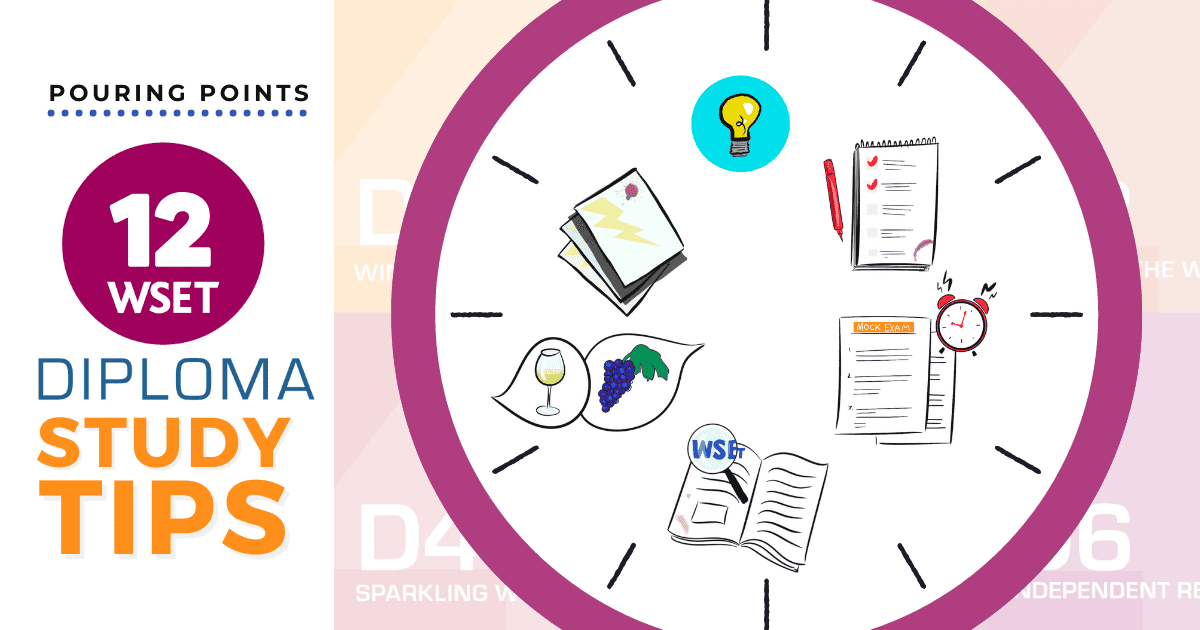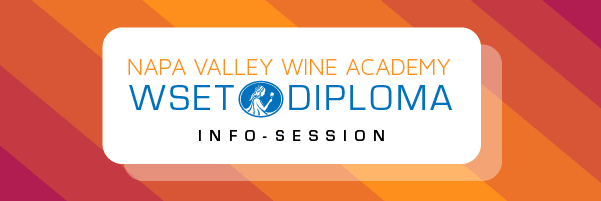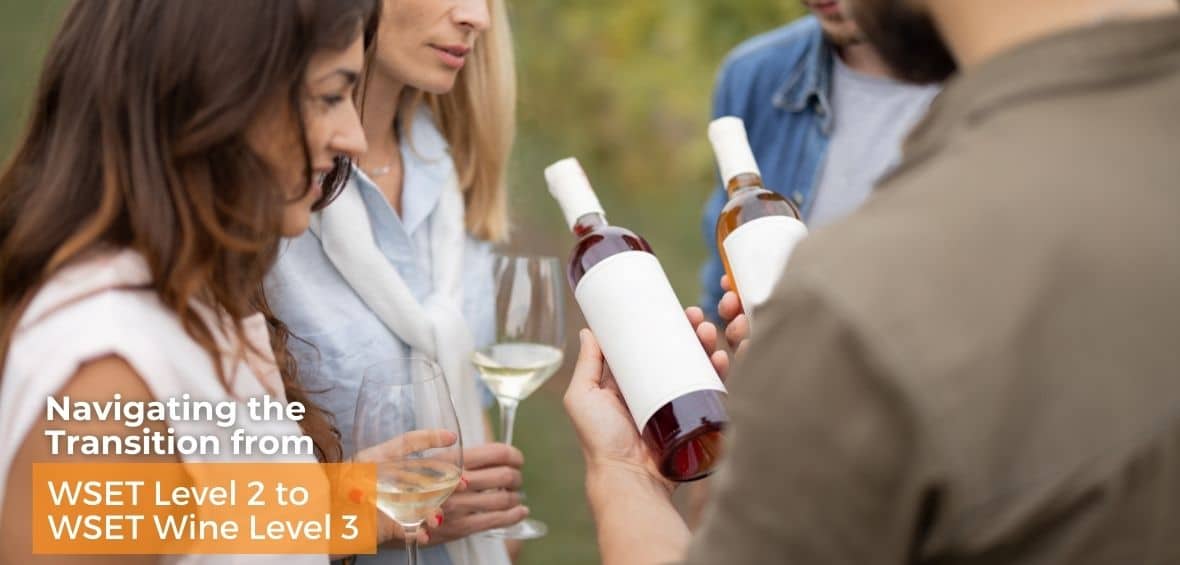12 WSET Diploma Study Tips
There’s a lot of advice on the internet about how to pass the WSET Level 4 Diploma, and some of it can be confusing or contradictory. As Napa Valley Wine Academy’s Diploma Manager, a lot of my time is spent shaping our diploma courses, parsing information from the WSET, and thinking about how to better serve our students during this multi-year academic endeavor. Below, based on my own experience completing the diploma program and what I have learned since, I’ve compiled a list of my top tips for studying, taking notes, tasting and how to approach exam days. If you’re considering becoming a diploma student or are already working your way through the units, here’s to being able to put that DipWSET after your name!
12 WSET Diploma Study Tips
- Learn the WSET’s command verbs. The WSET uses verbs in exam questions very specifically to indicate what kind of information they are looking for in your answers. Knowing the different verbs helps you understand the level of detail you are expected to provide and can also help you set up a successful answer structure.
- Learn the other terms that come up repeatedly in exam questions. For example, you are frequently asked to consider various techniques and how they affect the style, quality and/or price of a wine, so understand how the WSET uses each of those terms. The WSET also includes different aspects of viticulture under the umbrella terms “grape growing options” and “growing environment,” so knowing that trellising methods fall under “grape growing options” helps keep your answers focused on the information the examiners will be looking for.
- Learn how the exams work. The different diploma exams allot different amounts of time to tasting and theory, and you should know the format for each exam before you walk in. Paying attention to question weightings also helps you figure out how much time you should spend on each theory question. On the 90-minute D1 exam, you should plan to spend about 22 minutes answering a 25% weighted question, but on the D4 exam, the theory part is only 45 minutes, so you’d only want to spend about 12 minutes on an equivalently weighted question.
- Use your own words when you write your notes. On exam day, your answers will be in your own words, so thinking ahead of time how you can make sense of a concept will make it easier to understand than if you just tried to memorize a definition of it.
- Vary your study techniques. Repetition and diversification are the keys to getting course material into your head as an adult learner, so don’t be afraid to try different study techniques. To work on definitions, you might test your knowledge quickly by going through flashcards, but to understand the pros and cons of a winemaking process, making a worksheet comparing it to other methods can give you a better understanding.
- Practice under exam conditions. Writing timed, closed-book answers to mock theory questions can be uncomfortable, but there are few better ways to quickly learn where the holes in your knowledge are. For tasting, work on being able to write the appearance, nose, palate, bottle aging and quality assessments in 10 minutes or less per wine. It takes practice but will ensure you have enough time to answer any wine identification questions on the exam.
- Knowing your theory is the key to getting good at blind tasting. If you are studying sparkling wines, how will you be able to tell the difference between a Lambrusco and a sparkling Shiraz? Among other differences, by knowing that sparkling Shiraz is generally barrel aged in quite a bit of new oak before undergoing a secondary fermentation, which gives it aromas of vanilla and toast that you won’t find in Lambrusco.
- Don’t be afraid to engage and get feedback. Ask questions and participate in class, and submit feedback tests. Frequently, diploma students shortchange themselves because they worry about making a mistake in public or getting something wrong. But you are paying a lot of money for these classes, and your instructors are there to help you learn and prepare for your exams. If you have a question, it’s likely that someone else is also wondering the same thing, so speak up!
- Make a study plan. The amount of knowledge you are expected to know for diploma exams can feel overwhelming. Take 30 minutes at the beginning of each unit and figure out how you want to break up the information in the book so that you know you can cover everything before exam day. It can be easy to feel like any free time not spent studying is time wasted, but knowing that you have a plan to tackle all the material helps give you some peace of mind.
- Take care of yourself. Yes, the diploma requires sacrifices, and your social life may have to take a backseat during the leadup to exams. But don’t forget to spend time with family, exercise and do some non-wine-related activities to preserve your sanity and relationships.
- Learn from others. Diploma students have such a variety of backgrounds and experiences that forming study groups will strengthen your knowledge and make you think about questions you had never considered. In-person or on zoom, theory-focused vs. tasting-focused — it doesn’t matter. Relationships formed during the diploma form a fantastic base of support.
- Focus on your weaknesses, and prioritize fixing them. It’s easy to study a topic or region you are already familiar with, but completing the diploma requires you to also do in-depth study on regions you know you aren’t as comfortable with. It can be uncomfortable to admit you don’t know something, but it will only make you a better student of wine.















